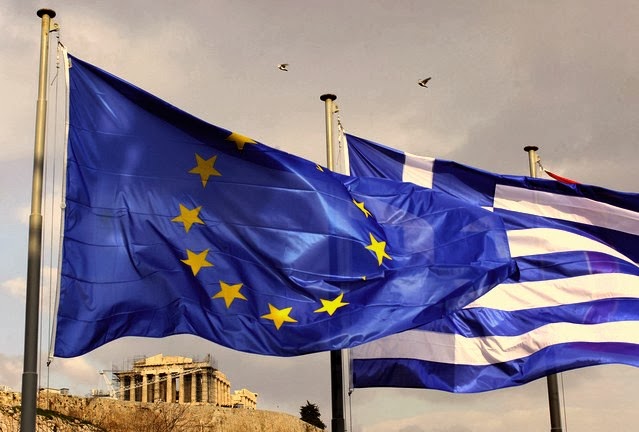Photo: Menelaos Myrillas/ SOOC
The criticism that the movement has not yet submitted its political platform is reasonable. And I think voters need to be aware of the parliamentary group in the European Parliament to which they send the candidates supported by them. As far as I understand, the Regulation of the European Parliament does not require this but it would be wise to have clarity on this issue. I do not know who will be the MEPs of "To Potami" but if they were George Gramatikakis and Miltiadis Kirkos who seem to have won the highest number of votes, at least so far, I think it would be more logical for them to join the group of European Socialists. I really do not know how "To Potami" will take such an important decision but in all cases, they claim they will make it and announce it soon.

Although SYRIZA has failed to achieve the percentage with which to overthrow the government, the ruling coalition is not at all sustainable. The fact that PASOK has not collapsed, as they say, is largely due to the blackmailing or the threats on the part of Evangelos Venizelos to the voters, namely that they must vote for Elia if they do not want the government to fall. It is obvious that this move proved successful. I spoke with people who were willing to vote for "To Potami" but preferred Elia at the last minute, precisely because they feared that the cabinet could fall. Therefore, I am saying that, ultimately, the citizens have preferred political stability.
To analyze the results of the vote we should take into account the gradually fading rhetoric of the "memorandum - anti-memorandum" dilemma. I think Greece is entering a new stage, and the time has passed for all the political forces that emerged and grew because of the memorandum. These European elections may prove to be a divide between a stage for the Greece, which is passing away, and a new one. That is why the voters have preferred political stability, in order to enter this new stage and emerge from the crisis with secure steps rather than with experiments and adventures. Personally, I do not see Greece emerging from the crisis soon, but at least the issue of the memorandum is no longer as acute as it was some years ago.
Cabinet changes are possible in the coming weeks too. As far as I know, this issue is being discussed as an option both now and before the elections. Special elections are possible in the coming months as well. This option is also under consideration. If they do not take place within this year, perhaps they will be announced at the beginning of the next, at the time of the elections for president. This is also on the agenda.
But in the medium and long term, I would say that the major issues are associated with the negotiations on rescheduling the excessive debt of Greece and its return to some, even insignificant, growth rate. And of course, the major question in the coming months relates to the major changes in the political system. It is no coincidence that New Democracy and PASOK are about to be transformed in some way. These two political pillars of Greece over the past 40 years are now definitely obsolete. And we have new emerging parties. In addition to the new formations, however, I expect new kinds of parties and "To Potami" is an interesting example in this sense.

A strategically important issue in the coming months and years will be the fact that, despite the optimistic statements of the government, the crisis in Greece is not close to its end, even if it returns to positive growth rates, as intended. Greece has yet to prove three things, as follows:
Firstly, that it has learned some lessons from the crisis.
Secondly, that it really wants to be a full member of the European community and not its "black sheep".
And thirdly, that it is ready to look ahead to the future in a very dynamic world.
Across Europe, we see a trend towards strengthening the positions of the extreme right and the nationalist rhetoric. Greece, with its Golden Dawn, obviously is no exception. That is, we have a European trend that is reflected in Greece.
However, one difference that should be noted is that Greece is experiencing a crisis of its own that is largely internal. For example, it is no coincidence that SYRIZA is the only leftist party in Europe that has won in the European elections. It is no coincidence that Golden Dawn is the only far-right party in Europe the leaders of which are in prison but its influence is increasing. These important differences show that Greece is experiencing a unique crisis of its own.